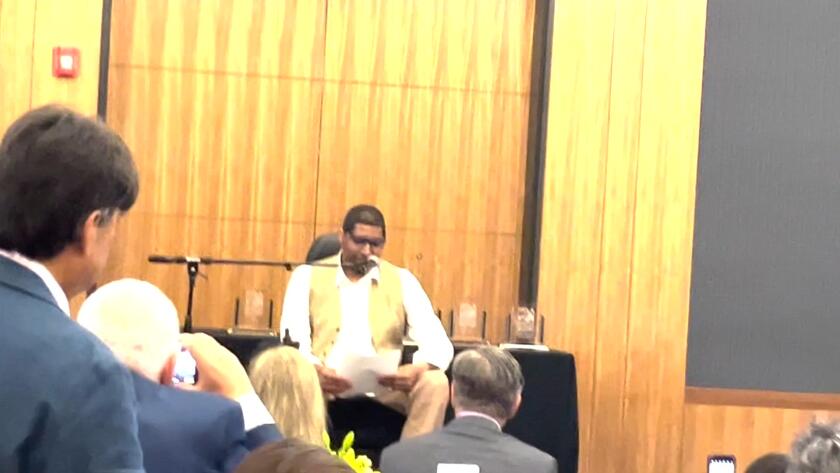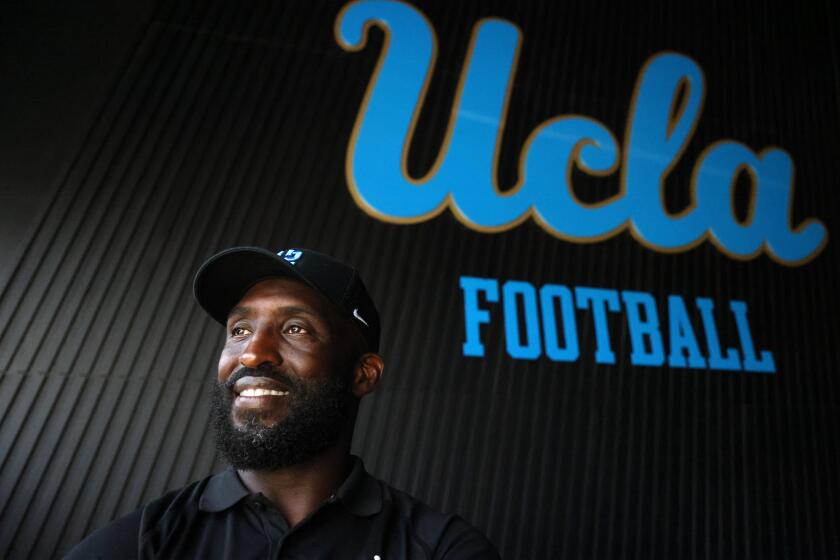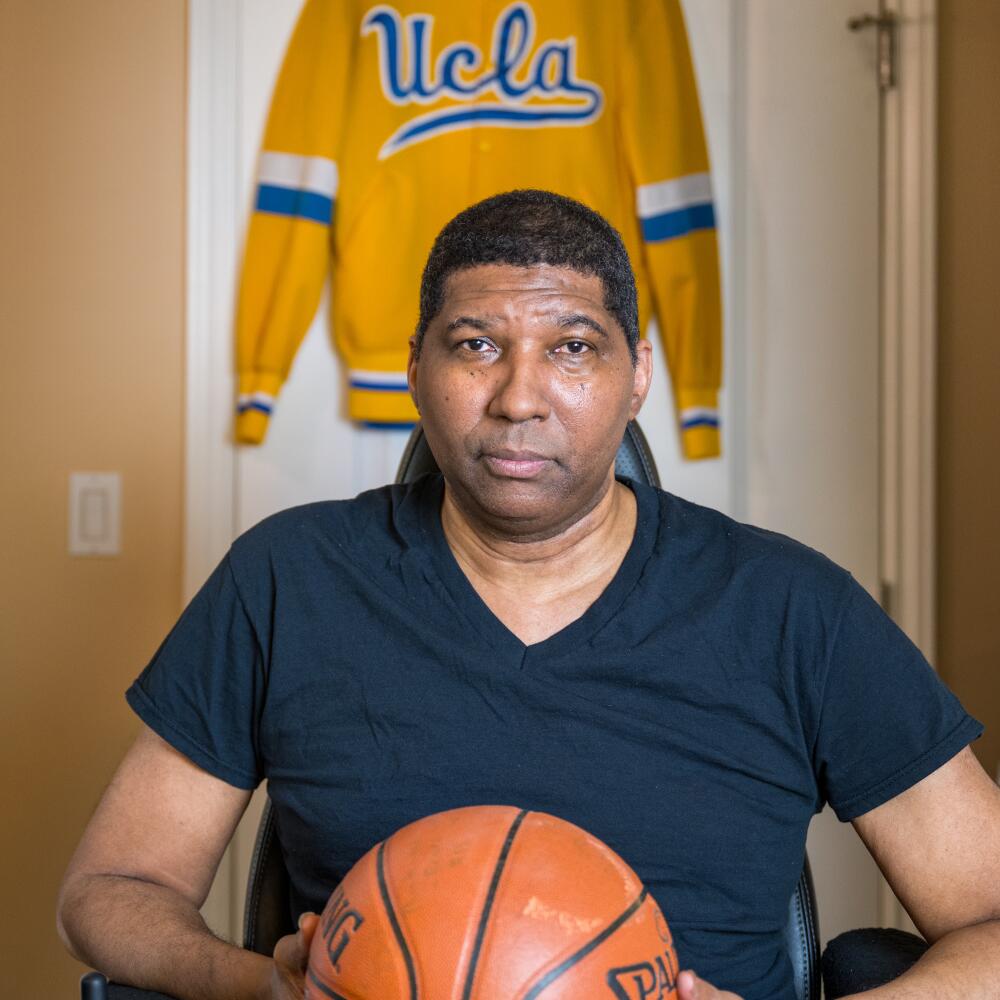
Once hailed as the fastest player in college basketball, he now moves with the push of a button. His motorized wheelchair whirring to life, “Rocket Rod” Foster uses the joystick attached to the end of an armrest to roll forward inside his West Los Angeles apartment.
He can raise his right arm to roughly shoulder level. His left arm, the weaker one, can only go up several inches. Foster can’t cut his food or get out of bed without help from his live-in sister. Even she is sometimes powerless to protect the onetime UCLA star from the perils of this terrible disease.
One spill getting out of the modified recliner that serves as his bed required a 911 call and three firemen to help get him back on his feet. Sleep is fitful, mornings even worse. Foster wakes up exhausted, slowly gaining strength. Physical therapy comes with its own hazards. If he reaches the point of fatigue while using a foot pedal designed to strengthen his muscles, it might actually accelerate his illness.
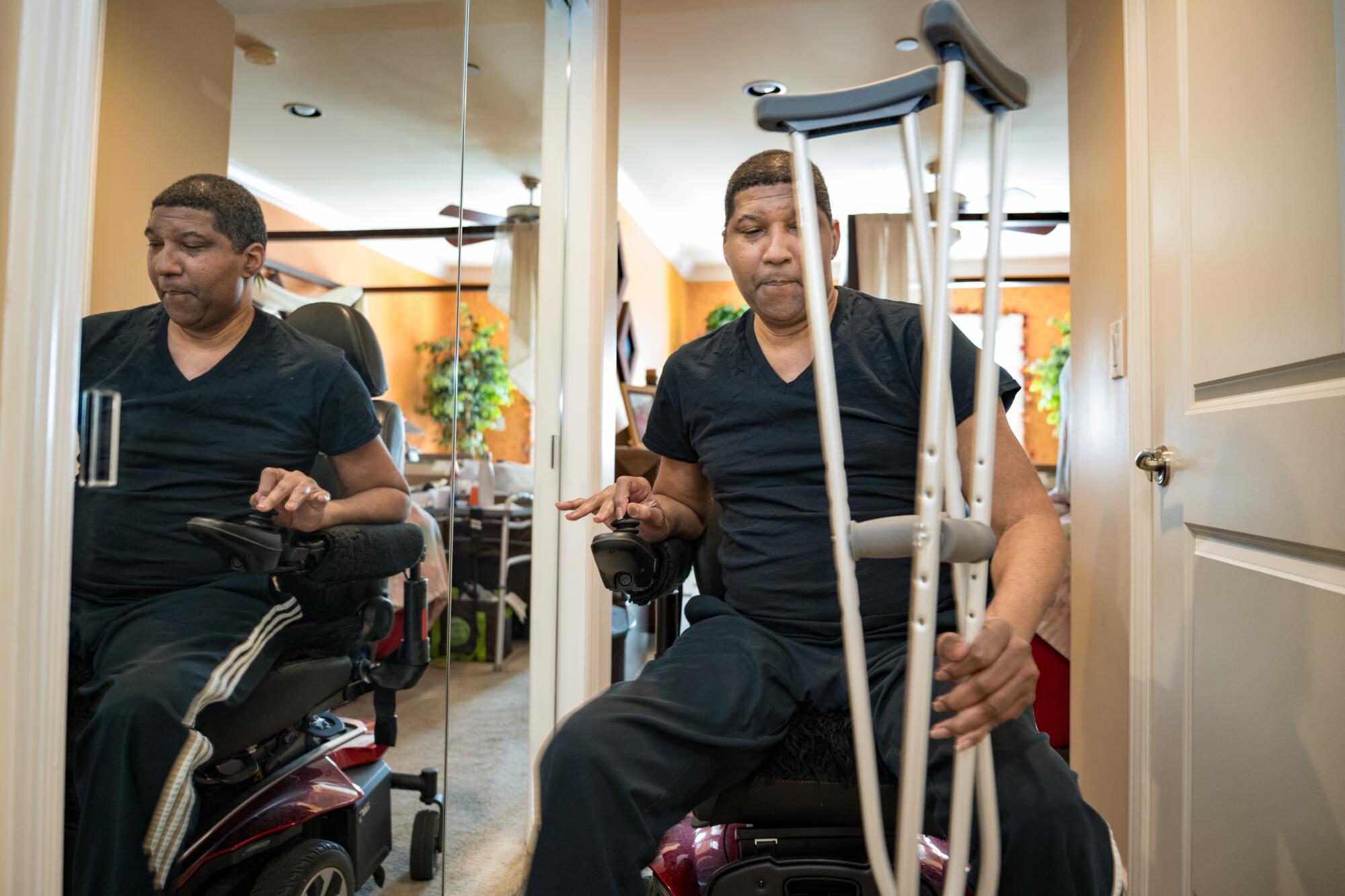
“My body’s fighting itself. It’s warring against itself.”
— Former UCLA basketball star Rod Foster
It’s so tempting to curse this rare affliction that can leave anyone in its clutches feeling helpless. Then Foster remembers the salvation that started with the Jeep accident almost 40 years ago. The moment that essentially ended his NBA career also commenced a more wholesome life rooted in unrelenting faith.
“I don’t have faith in faith,” Foster said, “I have faith in knowing that God is in control.”
His belief pushes him forward, back to his old campus Friday for induction into the school’s athletic hall of fame after another UCLA luminary championed his cause. Foster was hesitant about going, worried how he might look because of a few missing teeth and wildly overgrown hair. A dental bridge and a haircut left him feeling more assured about his appearance, prompting a round of hurried invites to former teammates.
Former UCLA basketball standout Rod Foster speaks during his induction into the UCLA Hall of Fame on Friday. (Ben Bolch / Los Angeles Times)
It’s been a heady rush, just like Foster becoming part of the first freshman backcourt to reach the NCAA title game in 1980 after Sports Illustrated proclaimed “The Bruins Are in Ruins” three months earlier.
But there is no beating this disease. One moment after Foster says this is all just part of a bigger plan, his words backed by a gleam in his eyes, he goes silent and his eyes grow sad.
No matter how much he might want to believe otherwise, this is only going to get worse.
“My body’s fighting itself,” he said. “It’s warring against itself.”
His toilet seat is motorized, rising and falling to provide a few precious moments of independence.
His bed, which resembles a first-class airliner seat before the lie-flat era, has a similar mechanical operation. But he still needs his sister’s help to get into the wheelchair that offers little solace, leaving him sore from hours of sitting.
Making the transition is its own ordeal. His sister places a belt around his waist before adding knee wraps to keep his legs from buckling. Pushing him down so he can lock his legs, crutches under his arms for support, she will then pull him forward so he can take a few steps to reach the wheelchair.
1
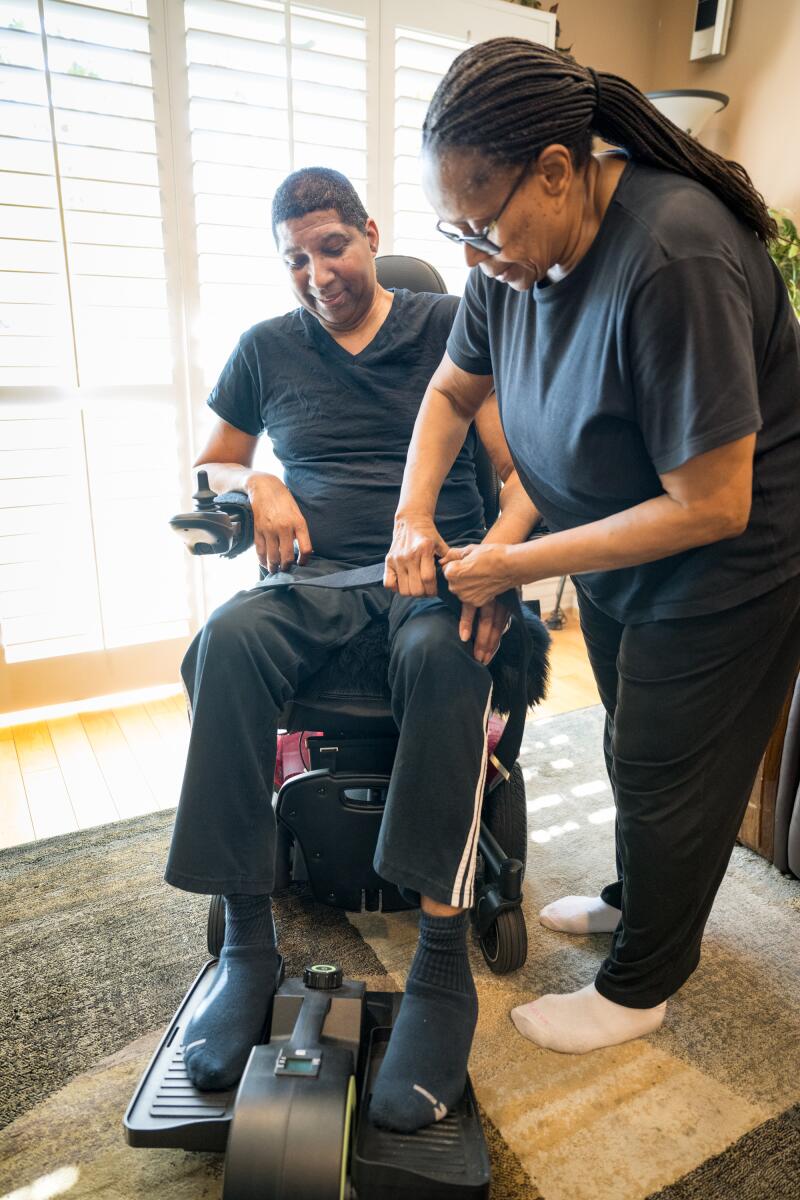
2
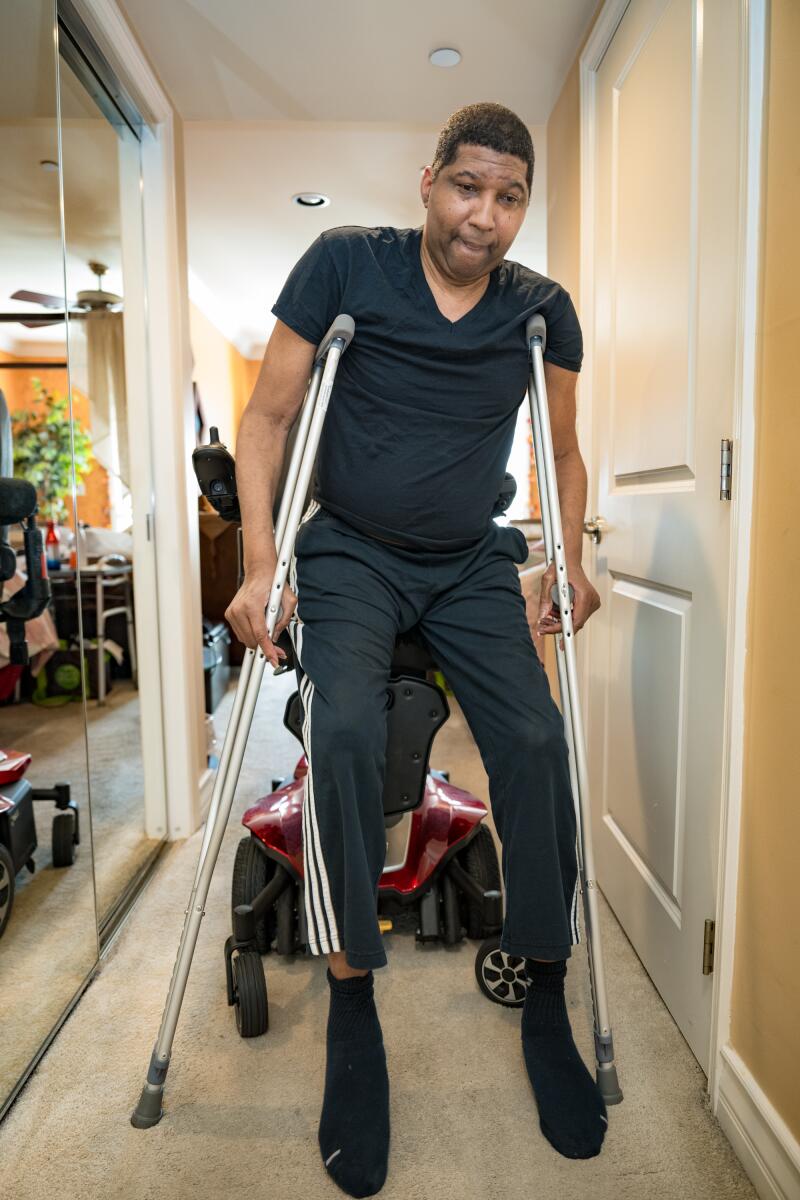
1. Rita Williamson straps together former UCLA star Rod Foster’s legs so he can exercise his legs on a machine in his West L.A. home. 2. Foster struggles to stand with his crutches as he moves away from his wheelchair. (Michael Owen Baker/For The Times)
It’s a tricky operation for someone so unsteady. Foster said he’s fallen 10 times in various places since he first noticed something was amiss about eight years ago, a neighbor once hoisting him onto his back after a slip in an alley.
Initially, the disease presented as weakness in workouts that his doctor dismissed as aging. Not satisfied with that explanation, Foster had some bloodwork done that showed wildly elevated creatine levels. He was starting to stumble in the gym while coaching. A member of his church suggested he might have the same disease tormenting guitarist Peter Frampton, who performed a farewell tour while seated on stage so that he wouldn’t take a tumble.
After performing a biopsy, Foster’s neurologist confirmed those suspicions — he was suffering from inclusion body myositis, a progressive muscle disorder usually affecting people over 50 that can involve inflammation, weakness and atrophy. While neither painful, nor fatal, the disorder eventually leads to persistent symptoms that require constant management. There is no cure.
The disease starts by attacking the largest muscle groups before spreading to others. After his initial bouts with tripping, Foster noticed that his backpack would inexplicably slide off his shoulder. The left side of his body is disproportionately impacted and he’s recently started having problems swallowing food.
DeShaun Foster and the UCLA Bruins rebounded from a brutal first half, rallying for a 16-13 road win over the Hawaii Rainbow Warriors Saturday.
“My forearms are under attack, my triceps, biceps, my delts,” Foster said. “I guess it’s attacking the smaller muscles now.”
As the disease took firmer hold, he went from using hiking sticks to a walker to a wheelchair. His sister Rita Williamson moved in a few years ago, occasionally relieved by sibling Merna Hill.
“They’ve been a godsend,” Foster said of his sisters.
He had to give up driving in 2021, now calling for an accessibility van that can accommodate his wheelchair whenever he needs to go to the doctor. That’s about the only place he goes these days. His church services are online and he leads a weekly men’s life group via Zoom.
Another reason to leave home surfaced in June when UCLA athletic director Martin Jarmond called, informing him that he had been selected for induction into the school’s athletic hall of fame alongside some of the biggest names in the history of his sport.
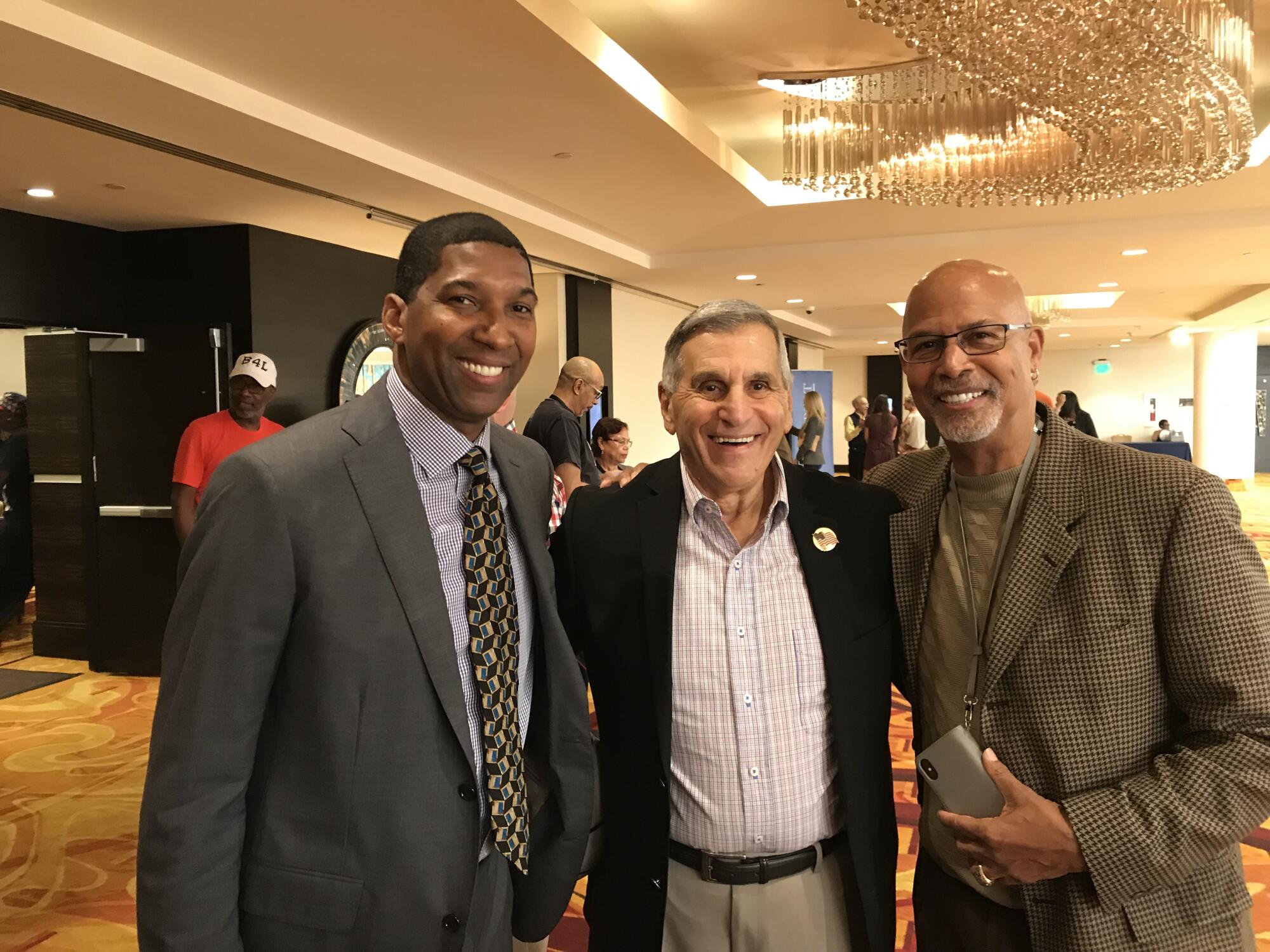
“That’s what’s humbling, when you think about Kareem Abdul-Jabbar, Bill Walton, Marques Johnson, Mike Warren,” Foster said, referencing other inductees. “I’m not in that class, nowhere near.”
Believing otherwise, Warren, a former Bruins guard who won two national titles under John Wooden, took up the cause to celebrate the player many consider the fastest in school history.
After attending a funeral when he was a boy, Warren had a discussion with his father about all the wonderful things said about the deceased. Warren’s father wondered whether those same words had been spoken to that person when they were alive.
“He looked at me, straight in the eye, and said, ‘If you have things that you think I will appreciate, tell me while I’m living and I can appreciate them,’ ” Warren said. “ ‘Let me smell the flowers while I’m alive.’ That never has left me.”
Many years later, those words still ringing in his head, Warren would become something of an unlikely advocate for Foster. They were not contemporaries, Warren more than a decade older. They were not close friends. Warren simply felt that Foster should be in UCLA’s athletic hall of fame at a time when he was struggling with health issues.
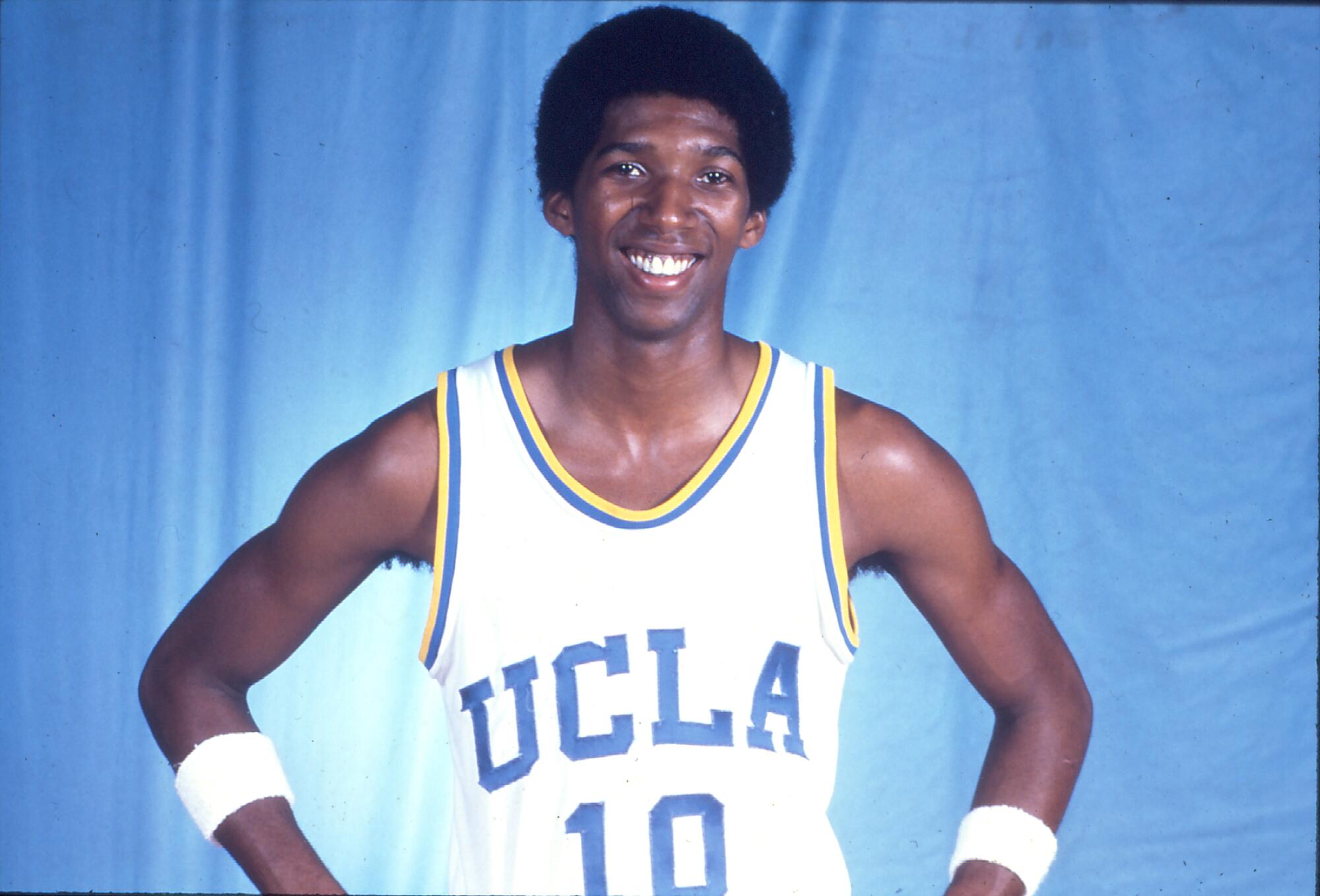
Writing a letter on Foster’s behalf last year didn’t get the job done. So when a spot on the selection committee opened, Warren jumped at the chance to coordinate a campaign highlighting Foster’s accomplishments.
“It became a no-brainer that he deserved to be in there based on his achievements and then based on what he did outside of basketball for others and then — not as a sympathy vote, let’s give this guy his flowers while he’s alive, he’s deserving,” Warren said. “You know, so many athletes have come through the pike, not only at UCLA but every program in America, who are not given their awards when they’re alive.”
Among those who wrote letters of support were Bruins basketball legends Reggie Miller and Ann Meyers Drysdale. Warren also solicited help from a Trojan, former USC coach Stan Morrison informing the selection committee about what it was like to face Foster.
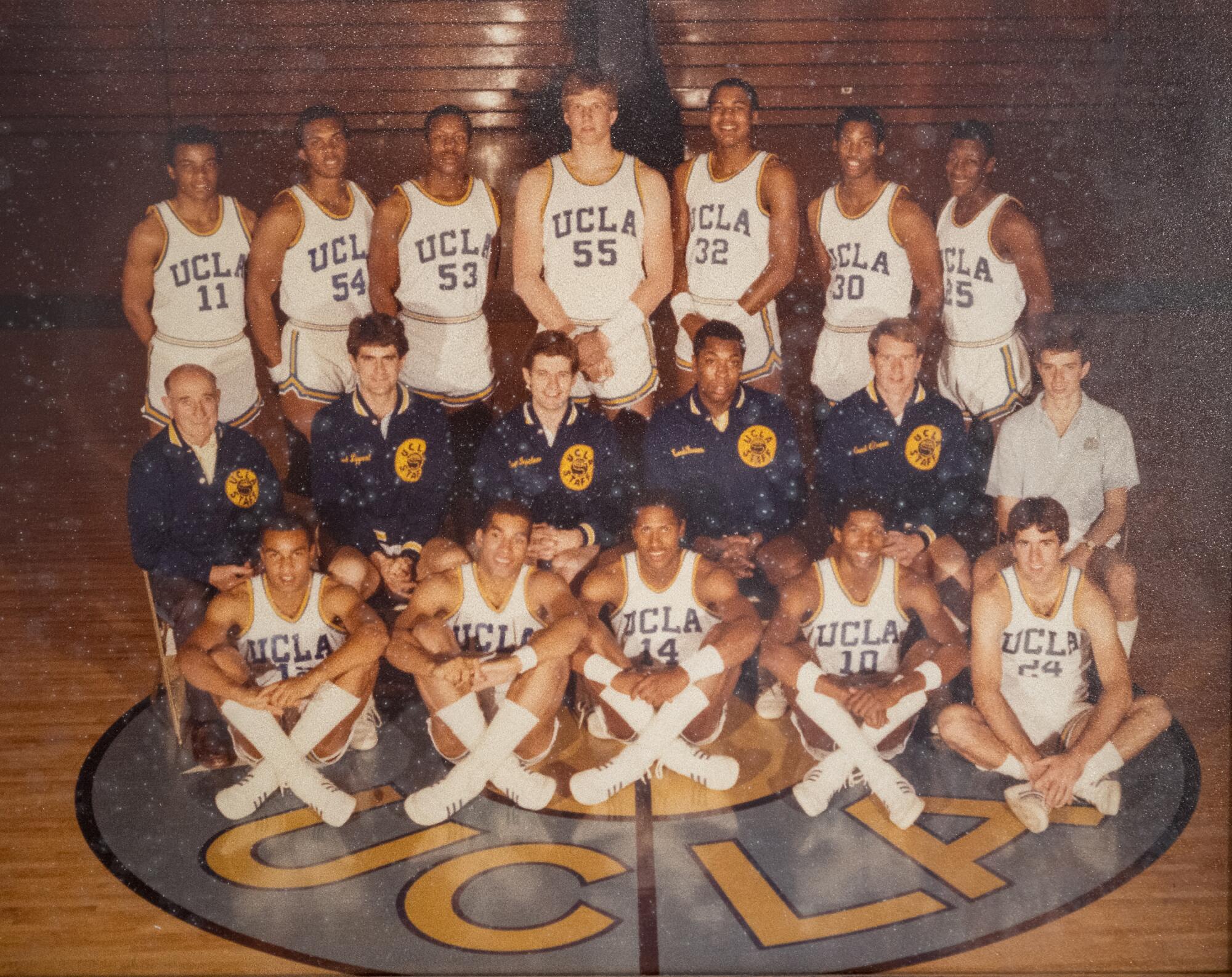
“As someone once told me,” Morrison wrote, “Rod is so quick that he can play tennis by himself.”
Like everything else in his life, Foster said his speed was God-given. His nickname wasn’t. Watching the zippy guard race up the court during a game against DePaul in December 1979, coach-turned-broadcaster Al McGuire anointed him “Rocket Rod.”
The Bruins experienced liftoff that season after Foster moved into the starting lineup as part of an all-freshman backcourt, going from one of the last teams selected for the newly expanded NCAA tournament to the championship game. Foster starred in that loss to Louisville with 16 points, six steals and five assists, the Bruins falling short after Kiki Vandeweghe missed a layup that would have given his team a six-point lead with less than four minutes to play.
“Because of his age, there wasn’t a big scouting report on him, so to speak, and there weren’t really many — if any — players in NCAA basketball with his skill set,” said Michael Holton, UCLA’s freshman point guard that season, “and in an NCAA tournament setting, his explosiveness was a huge asset for us.”
Continually beating his man off the dribble, Foster went on to become a four-year starter also known for absurd free-throw accuracy. His success went beyond sound mechanics, Foster receiving an unexpected assist during his freshman season from legendary UCLA trainer Elvin C. “Ducky” Drake.
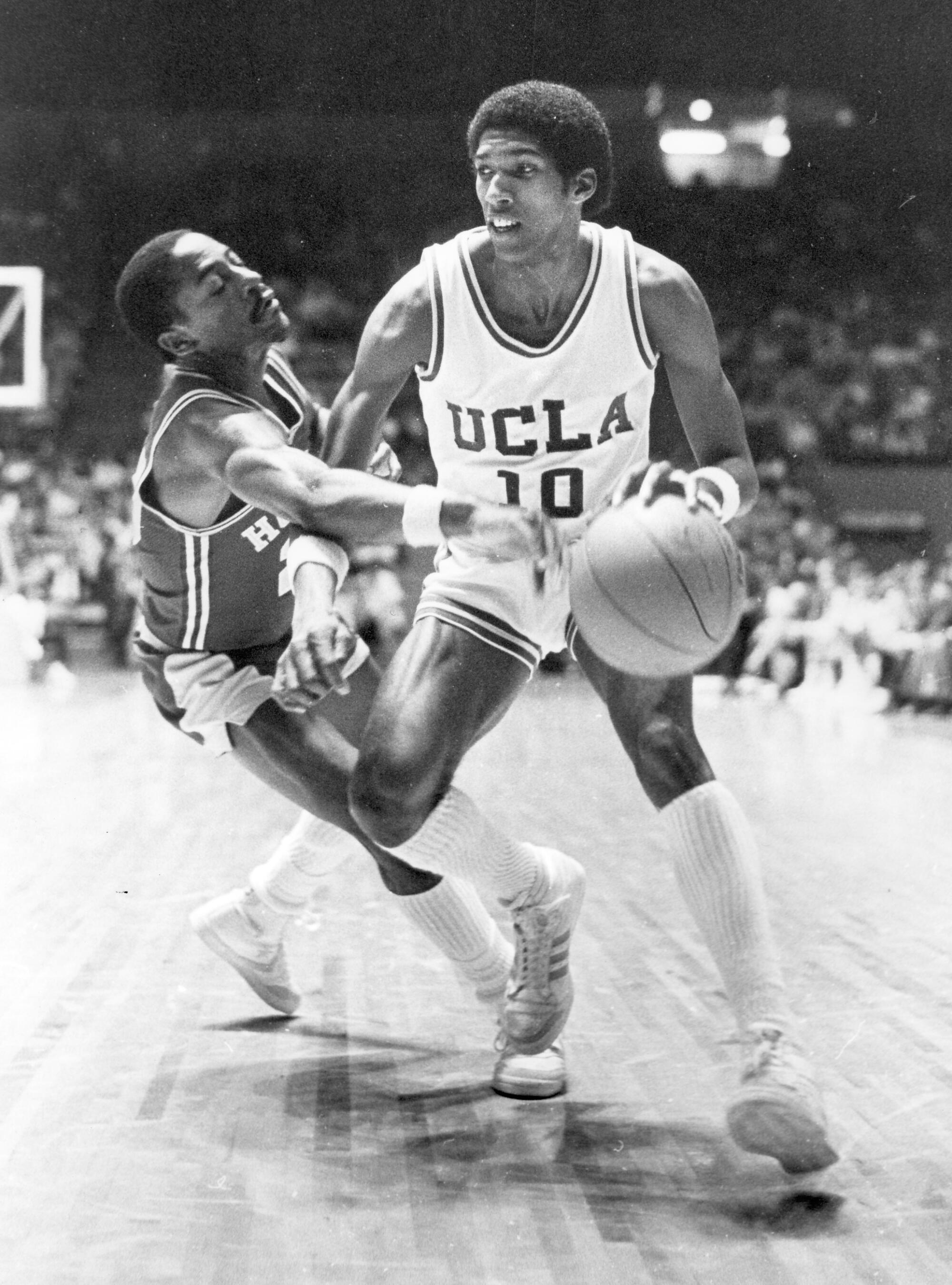
“He put his hands on my shoulder, he looked me in the eye and he goes, ‘What do you think about when you shoot free throws?’ ” Foster said. “And I go, ‘I don’t know.’ And he goes, ‘Just you and the basket, just you and the basket.’ So from that time, I would just stare at the rim and focus, black all the distractions out, and every year my percentage went up.”
During his junior season, Foster made 95 of 100 free throws to lead the nation with 95% accuracy. He remains UCLA’s all-time leader in career free-throw shooting percentage (88%).
His sharpshooting remained a theme after the Phoenix Suns selected him early in the second round of the 1983 NBA draft, Foster ranking among the team leaders in every shooting category until his career unexpectedly veered off course.
On an off day late in his third season, Foster took teammates Ed Pinkney and Mike Sanders off-roading in his Jeep on some desert trails outside Phoenix. Coming over a hill on a narrow path, Foster lost control, the vehicle flipping onto its side but not over the edge of the cliff.
“It was death on both sides,” Foster said of the disaster averted.
Sticking out his left leg from the open-door vehicle in an attempt to brace for impact, Foster suffered major fractures of his tibia and fibula. The injuries required three operations and essentially ended his NBA career. Nearly 40 years later, Foster views the accident as a blessing that saved him from a wild lifestyle centered around drinking and promiscuity.
“I was headed for trouble,” he said. “Every year seemed like it was getting worse.”
The change wasn’t immediate. While rehabilitating his injuries at UCLA, Foster attended a party where he witnessed drug use shortly after Boston Celtics draft pick Len Bias had died from a cocaine overdose.
“I was like, this is just crazy,” Foster said, “there’s got to be more to life.”
Driving on the San Diego Freeway, Foster thought about his own possible demise in the Jeep accident. He called a friend, Lance Jackson, who had been pushing him to put his faith in Christ. They agreed to attend church, where Foster felt like the pastor was speaking directly to him.
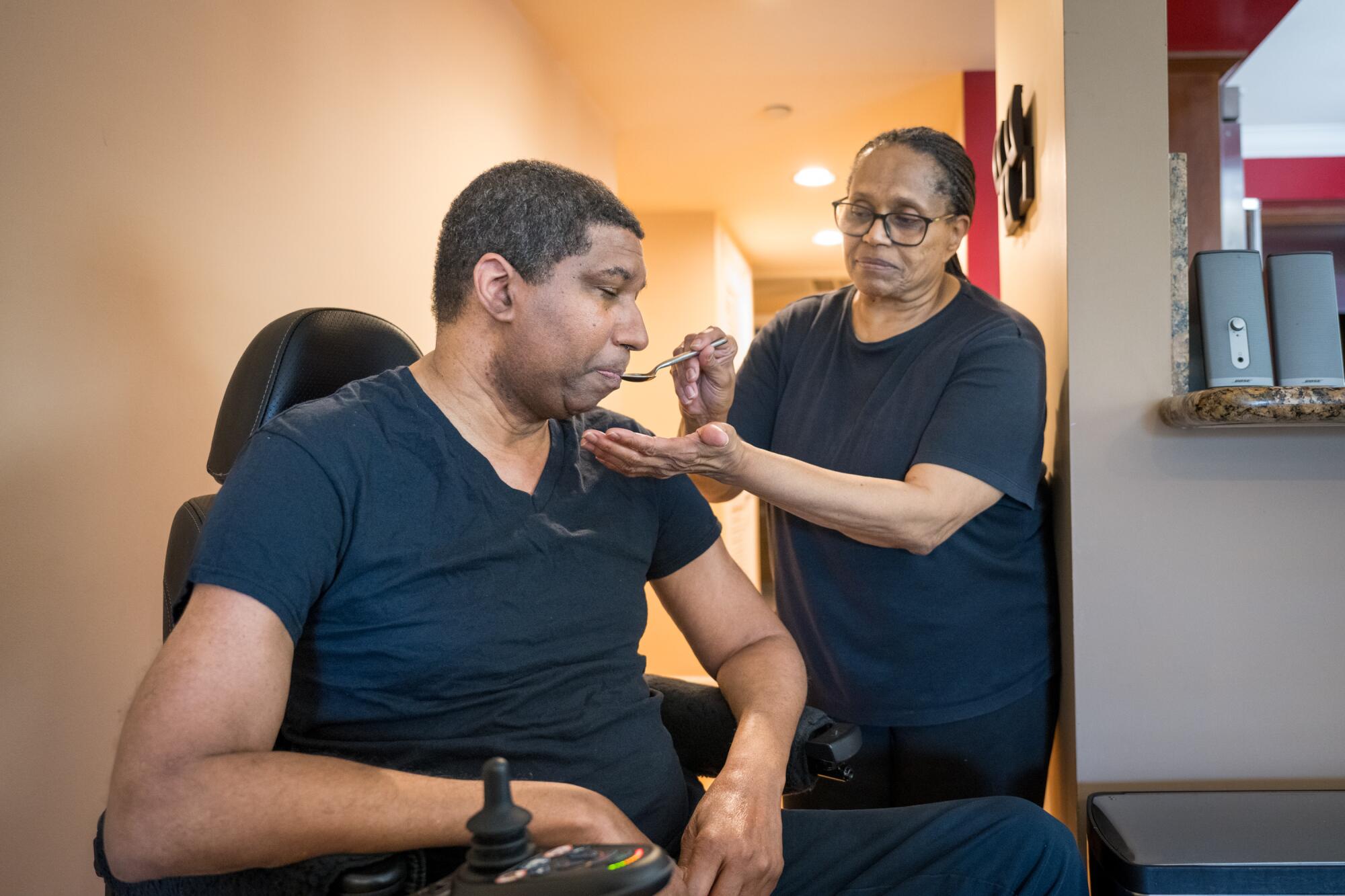
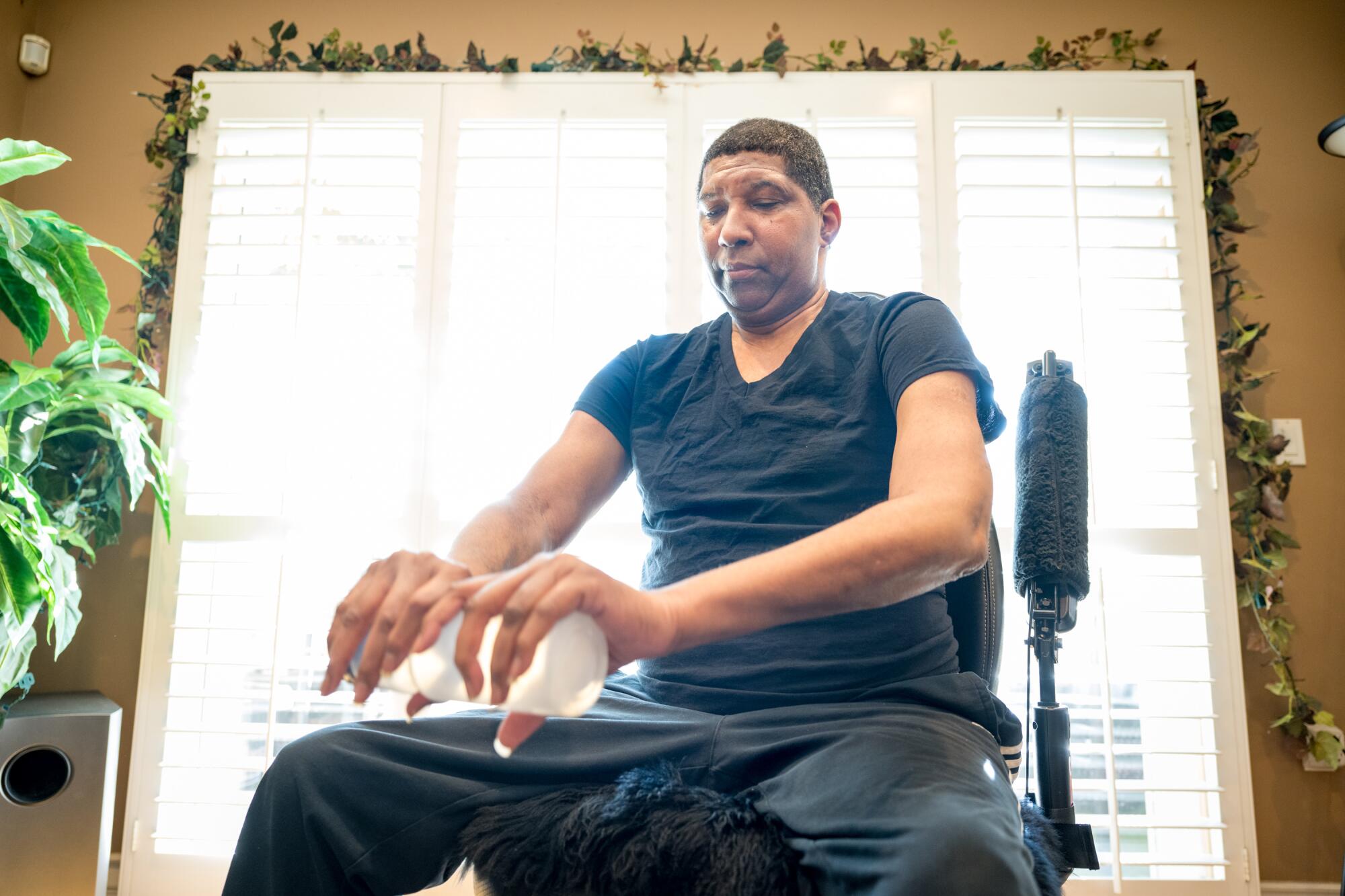
“I always believed in God and Christ,” Foster said, “but I knew I wasn’t living for Him and I knew I needed to repent and turn my life over to Him and I’m not kidding you, I stood up and part of me was like, ‘Rod, you can’t give yourself to Christ — what are you going to tell your girlfriend, what are you going to tell your teammates?’ And I know it was God’s call, he was calling me and saying, ‘Trust me, trust me.’ And so I went forward and I invited Christ to be the Lord of my life and I started seeing changes.”
Feeling a strong desire to read scripture and attend church, Foster started the process of growing his faith and embarking on a life of service. Part of his efforts have involved coaching and training young basketball players, including former USC guard Gabriel Pruitt and former UCLA guard Jules Bernard, among many others. Foster also conducted basketball clinics around the world, speaking about the benefits of abstinence in Uganda at a time when the AIDS epidemic was ravaging the country.
More recently, he’s helped a former Bruins teammate, providing Darrell Allums food and sneakers to assist the man who spends much of his time panhandling at the corner of San Vicente and Wilshire boulevards, only a few blocks from Foster’s home.
“I don’t have faith in faith, I have faith in knowing that God is in control.”
— Former UCLA basketball star Rod Foster
Even with lifetime health insurance provided by the NBA, Foster could use some help of his own. Just this week, friends established a GoFundMe page that could pay for a motorized lift to securely move him from one place to another and a sleeping chair that elevates him to a proper height and doesn’t leave his feet dangling off the footrest. (He said it’s been about three years since he’s had a good night’s rest.)
In the meantime, he continues to be buoyed by all the friends, players and teammates who drop by his apartment, including the freshman team from Oaks Christian High that he once coached. Holton, now a studio and radio analyst for the Portland Trail Blazers, visited about a month ago.
“It was like our freshman year in the dorms,” Holton said. “I mean, it wasn’t gloom and doom, he wasn’t talking about himself, he wasn’t talking about his health, he was reflecting and sharing his faith. Spirits were high. It was amazing.”
Foster freely admits that’s not always the case. One day after watching a video about the progression of his disease, he sat resting his chin in his hand, deeply depressed. Soon he realized he was worrying about things that he couldn’t control, finding peace in the thought that God would lead him to a better place.
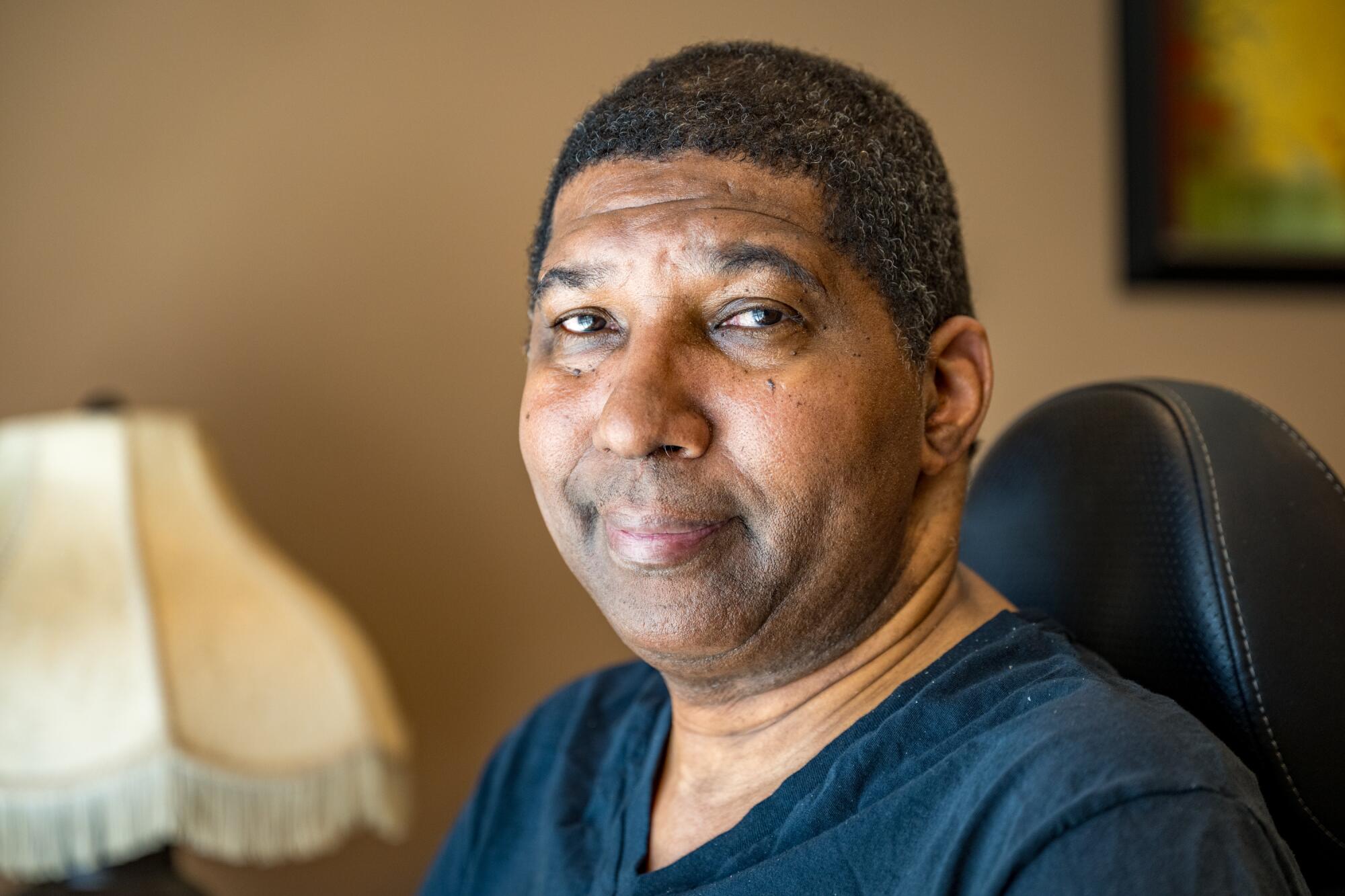
Often that direction comes in unexpected ways. While speaking to a former roommate, Allan Hanckel, his wife, Karen, came onto the line and insisted that Foster attend the induction ceremony at a time when he was wavering.
“She said, ‘Rod, you’ve got to go to this thing. Do you realize what a testimony you’d be in your condition?’ ” said Foster, who will turn 64 in October. “And I’m like, physically, how am I going to do this? I’ve got missing teeth, my hair’s out of control. I’m in this chair that’s uncomfortable. What if I have to go to the bathroom?”
Eventually, every concern addressed, Foster agreed to go. He doesn’t expect to attend UCLA’s football game against Indiana on Saturday at the Rose Bowl, where the seven-member induction class will be recognized on the field, because of the long trip to Pasadena and accessibility issues, but who knows?
Change, like everything else in his life, tends to come quickly.
More to Read
Go beyond the scoreboard
Get the latest on L.A.'s teams in the daily Sports Report newsletter.
You may occasionally receive promotional content from the Los Angeles Times.

